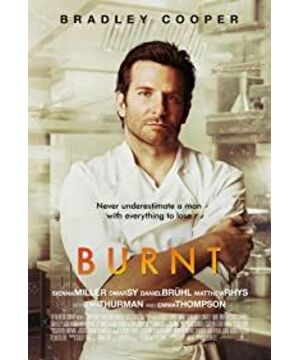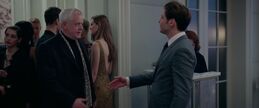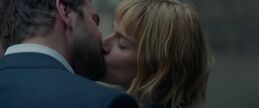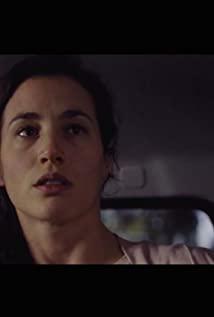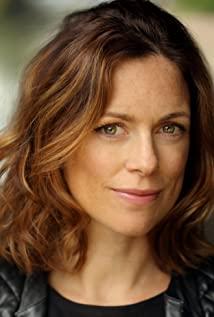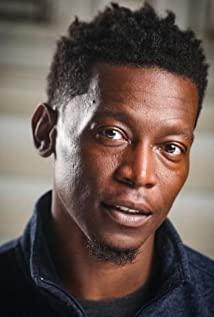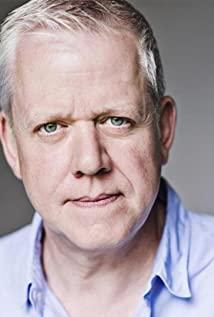It's just that I really like the lens language and narrative style of this movie; at least this movie has some sincerity and innovation that are seriously missing at the moment. As for me, the thoughts and ideas after watching the movie are also coming in endlessly.
The movie opens with a short monologue, followed by the incomprehensible self-punishment of the protagonist Adam (an accomplished young chef). For his trouble in Paris, he returns to the dirty corner of a small American restaurant. To deal with 100,000 oysters, I also used a small book to remember the numbers, and after the years were completed, I walked away. After being punished, Adam came to London and re-established his goals. For the sake of Michelin's three stars, he sought out colleagues and friends in the past, and now excellent partners. The whole process is a single-line, tramp mode, which is very simple and very direct. The appearance of different characters will all go back to the past. Adam’s experience and encounters in Paris, no narration, no monologue, no flashbacks, no explanation, the appearance of a certain character, through a simple dialogue, fills in Adam’s past and a certain place. The character also enriches the current plot development at the same time. This kind of plainness is only expressed through the lens, and through a large number of montage shots, the investment, space and understanding left to the audience are extremely rich. I can't help thinking of the most meaningful "blank" in Chinese painting art. An American movie that can do this is quite intriguing.
Recall briefly the characters that appear in the movie, many of which are simple details, except for the heroine. For example, Adam’s enemy, the black colleague Michel, who gave him cruel revenge at the end of the film, handled it very lightly. A few lines of dialogue gave this person a retribution of his character and what Adam did to him back then. It gave the audience some inexplicable reveries. Another example is Adam’s other enemy, the crazy jealousy when he was praised by the media in Adam’s restaurant, compared to the comfort and relief when Adam collapsed and desperate at the end of the movie. The complex character of this supporting role also preserves Adam’s extraordinary talent and fierce temper. Adam's mentor didn't even have a shot in the movie, and the set of knives left to Adam after his death was just a flash. Adam’s business partner Tony, at the end of the film, I realized that he was gay, and his feelings for Adam were quite complicated. That's why I went to peep into the Adam hotel room to see if he was drinking and taking drugs, and smelling Adam's T-shirt and folding it up and so on. In retrospect of things like this, there are actually many, many in the movie. The line drawing in Chinese figure painting is the same, simple yet refined, and it is mostly aftertaste.
The last topic may be broader and far-reaching. When watching this movie, my mind has been flashing back and forth, and that is about cooking. Chinese and Western cooking, the art and meaning of cooking, cooking and life, etc.
There is a metaphor in the film, which puts cooking and sex together, and the purpose is the same, but there is some novelty and fun in the process. However, I feel that Chinese cooking has another realm. The allusion in "The Analects of Confucius" "rules a big country like cooking small fresh food", this is the understanding of Eastern wisdom in cooking, and it is more philosophical and charming. Regarding art, one of the simplest concepts, everything that has been artificially processed is an extension of art. Therefore, the presentation of the dishes in the movie kitchen, including the cooking process, through artistic interpretation, will have an extraordinary aesthetic enjoyment; however, the luxury and fineness of Chinese food may not be comparable to Western food. This is my personal understanding. "China on the Tip of the Tongue" once introduced a short section of Chinese knife skills, which is to cut tofu into shreds, which is thinner than hair. This kind of knife crafting is no longer a simple technique, but also requires the heart of the swordsman. The incomparable devotion and tranquility have completely risen to the realm of pure art, which is amazing.
At the end of the film, Adam is determined to win the respect of others again. This inner change allows him to face the Michelin three stars calmly; with his colleagues around the processing table, enjoy a simple family-style dinner. The last shot, the close-up from the side and the back, smiles lightly, very tenderly. In fact, having a meal with family and friends is no longer cooking itself, but a kind of fulfillment of life. For life, cooking is really nothing!
There are not many movies that can have feelings, aftertastes, and associations. It's a pity that this movie is not a masterpiece, but after watching it, I think a lot. Possibly, the film is deliberately plain, without a little shock and moving, and for most people who like sensory stimulation, it is dull and tasteless. The old saying goes well, "The article is about the past, and the gains and losses are known."
View more about Burnt reviews


